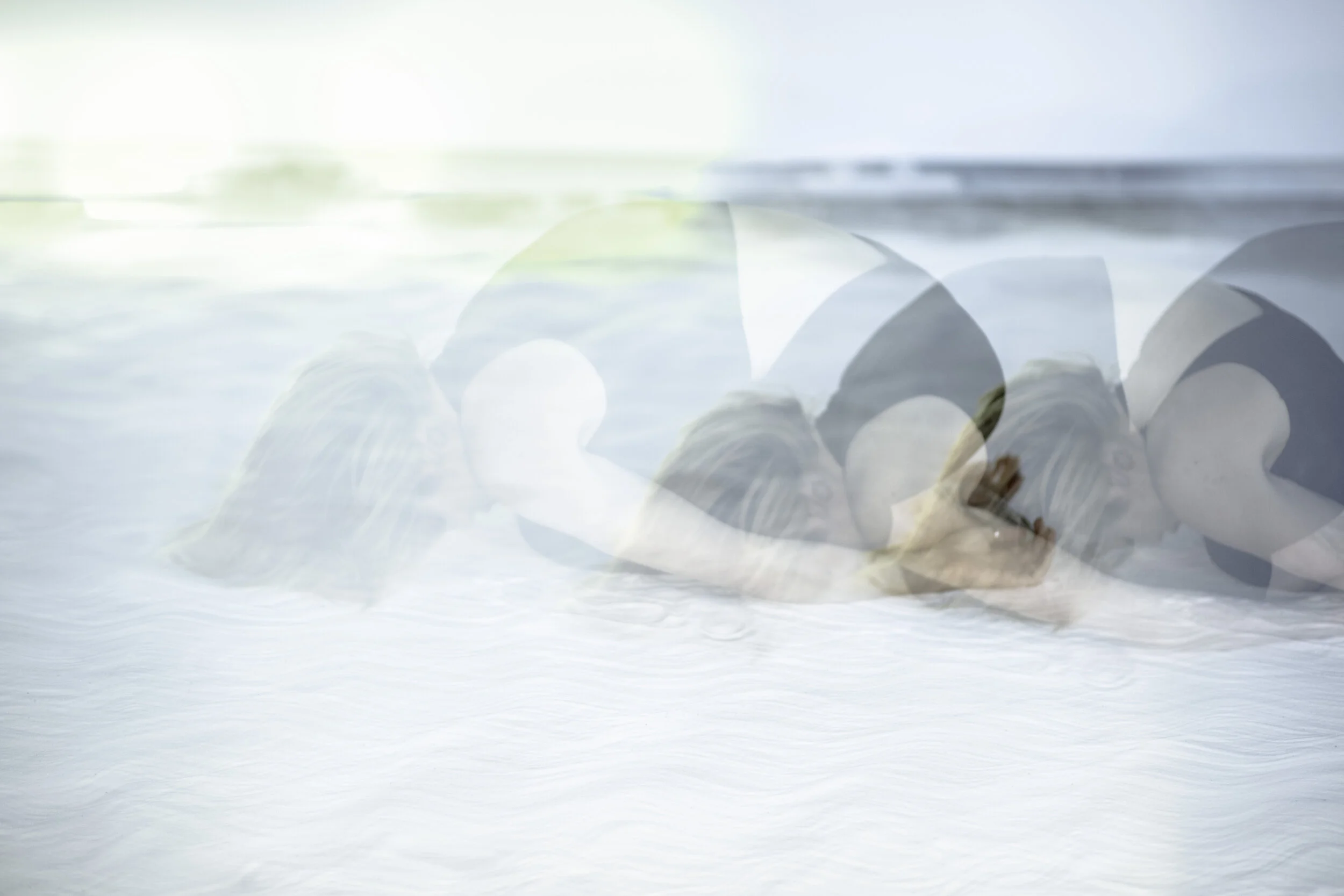Lou Barnell, Experiments in Sonic Corporeality
2 June - 1 July
Lou Barnell works with choreography, dance and experimental instrumentation made from found objects to ‘sound out’ lost stories and ways of being. Body, dance, ritual, time and societal narratives are the core of her work and explores how the body can be an instrument, interrogating how we are shaped by our worlds.
During her residency at Gildengate House, Lou Barnell researched and developed her work and worked with cross-disciplinary practitioners. Lou Barnell invited visitors to an open studio of an immersive multichannel sound installation, and durational movement and vocal performance. By navigating a map of hundreds of kilos of salt, Barnell created physical motifs inspired by her disoriented experiences having Dyspraxia and used vocal sounds to centre herself when becoming distracted.
I have Dyspraxia, and my lived experience feels like a sonic collision between my body and the world.
My pulse, breath, thoughts, dreams and perceptions are constant rhythms, living together inside my body.
They beat out of time with the social world, which often disorientates me.
I often allow myself to be distracted, to remove the dissonance and create a space where I can focus.
I became interested in how sound can orientate, disorientate and distract us and how bodies, selves and identities are produced and maintained through a symbiotic relationship with performance and sound.
SCORE:
Walk around the space
Cover your ears
Notice your breath and footsteps
Hum quietly
Uncover your ears
Experiment with covering and uncovering your ears.
Notice when you become distracted.
Photo credit: Aadhar Gupta and Enya Belak Gupta






